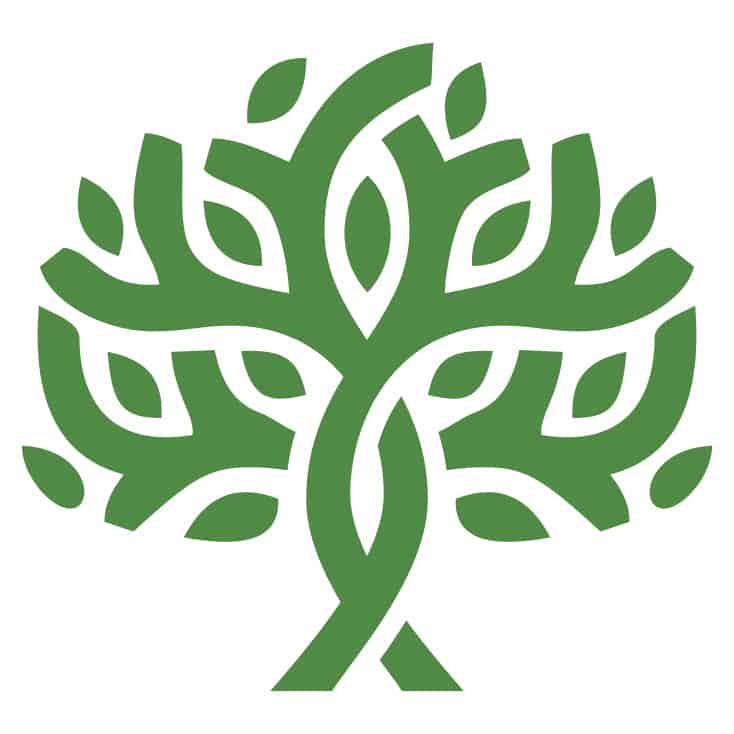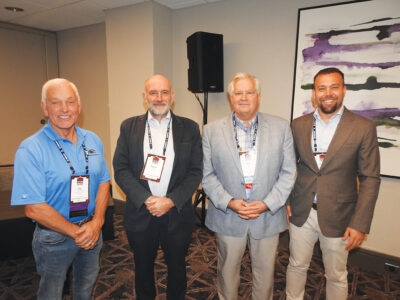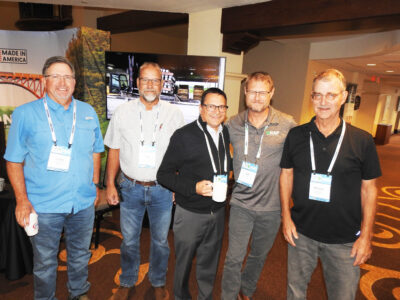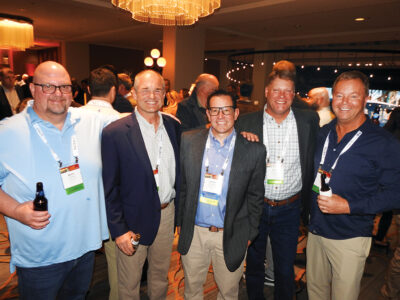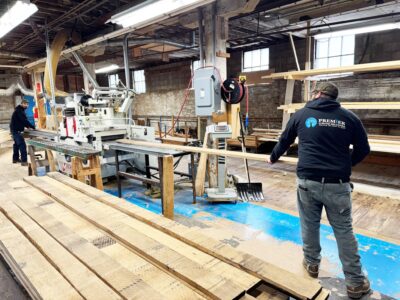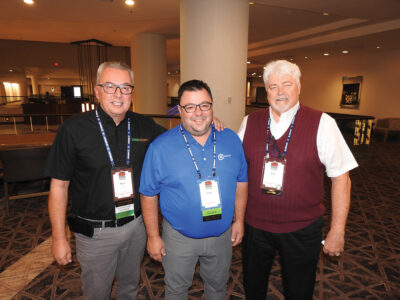“We stand by our products and will do anything to ensure our customers are happy and satisfied.” – Osei Poku, founder, Baystate Industries
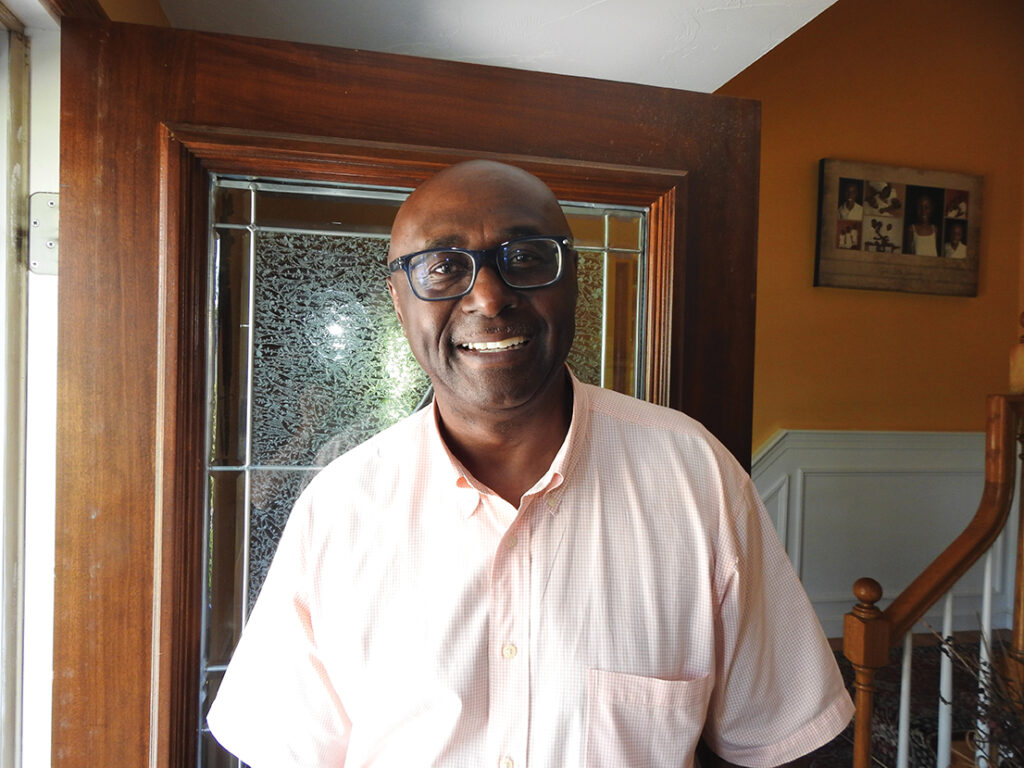
Osei Poku — affectionately known across the North American forest products industry simply as “Poku” — founded Baystate Industries with his brother in 1992. Based in Foxboro, MA, Baystate Industries quickly established itself as an exotic timber importer and broker, catering to wholesalers and distributors of primarily African timber. The company is supported by family mills in Ghana, including one run by Poku’s brother, and an African timber export structure that has been generations in the making.
“My uncle was one of the first two Ghanaian exporters of timber (mostly to Europe). When he visited the United States in the summer of 1991 for cataract surgery, he brought samples of wood with him. He encouraged my brother and me to find customers for his production, promising to fulfill any contracts we secured. We started cold calling and made our first deal in the Philadelphia area, importing a container of high-quality, kiln-dried African Mahogany lumber. From there, Baystate Industries took off, and we soon supplied Mahogany, Sapele, Utile/Sipo, Anegre and other African species primarily to the East Coast of the U.S. The company solidified its position when we placed our first advertisement in the Import/Export Wood Purchasing News, attracting customers from Europe, Australia and New Zealand. Today, the company has established strong relationships with suppliers in other African countries while maintaining its Ghanaian sources. The company is shaped by Poku’s belief in top customer service and quality products. “We stand by our products and will do anything to ensure our customers are happy and satisfied,” Poku explained. “There have been bumps in the road where we had to work harder at our own expense to address customer complaints. We strive not to lose a single customer due to dissatisfaction with our products or service.”
Understanding that offshore timber buying and supplying can have its challenges, Poku has hired five graders in Ghana. Their job is to visit every mill contracted by Baystate Industries to ensure top-notch quality timber and adherence to customer specifications, and to provide Poku with accurate production updates to inform his customers worldwide.

“When we have shipments from other African countries like Cameroon, Congo, Gabon and the Democratic Republic of Congo, we stay in direct contact with the mills to ensure contract specifications are met. We have been very successful, and we have happy customers worldwide,” Poku remarked. Today, Baystate Industries handles about 60 40-foot containers per year, sometimes more.
In fact, Baystate Industries handles every species from Africa and, due to its excellent relationships with various suppliers, can meet any customer specification, usually on time. Poku emphasizes “usually” because shipments can be delayed during the West African rainy season (March through August, sometimes extending to October) primarily due to logistics.
Three decades after Poku’s uncle’s trip, Baystate imports African Mahogany (including select grains), Spanish Cedar (Cedrella Odorata), Sapele (including select grains), Black and White Limba, Teak, Wenge, Zebrano, Niangon, Avodire, Utile/Sipo, Afromosia, Anegre, Obeche, Iroko, Black Hyedua, Makore and Mansonia annually. Many of these species are available kiln-dried or steamed.
Poku stressed that Baystate works with each of its customers to tailor their orders to, not only, fulfill the need of specific projects, but also to keep costs down. Baystate has the ability to source (or mill) all sizes, but the majority of the wood it exports to the U.S. is in thicknesses of 4/4, 5/4, 6/4 and 8/4.
One of Baystate’s strengths as a business is its ability to simplify the often-precarious duty of directly importing goods. The company has developed a pricing structure that makes it easier for its customers to forecast costs and accurately estimate jobs without having to reprice material. Rather than pricing one contract at a time, Poku said that Baystate will honor the price that it gives a customer for an entire year. Aware that many import brokers do not offer the same level of customer care, Poku said, “All you have to do is pick up the phone and say, ‘Poku, I need two containers of African Mahogany,’ and you pretty much have an idea of what the price is going to be, and we keep going.”
The company has traditionally not kept stock in any warehouse in the U.S., lately Poku said they have come to realize that sometimes some customers want a product immediately so, from time to time we bring in some Mahogany, Sapele or Spanish Cedar but most of this is usually sold while on the water!
Additionally, according to Baystate’s website, the company, “only works with and represents African timber mills who have genuine government-issued concessions.”
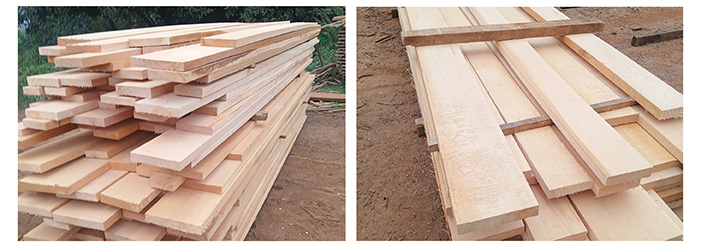
Benefiting from the relationships Poku’s family has developed over generations in the African forest products industry and the skilled staff on-site in Ghana, Baystate often takes the extra step to provide its customer with photos of the exact bundles of wood for approval before the contract lumber is loaded in a container. “We have found that customers like it when they see the packing list of their order as well as some pictures prior to container loading to the various destinations worldwide,” Poku said. This illustrates the ends to which Baystate will go for its customer.
Poku went on to say, “I can pick up the phone at midnight on Saturday and talk to a mill owner directly and then, I can tell the mill owner that, ‘Okay, tomorrow or Monday, I will have my guy come see you and take a look at what you have at your locations.’ Once we make a deal with the mill, one of our reps will start visiting the mill until the contract is completed and we have packing list and pictures that we can show our customers.” This system serves the company very well and it has bolstered Poku’s confidence to take on any contract specifications be it casket specifications for casket manufacturers or even for the tough to find specie like Wenge and Zebrano.
So, while Baystate does not stock in North America, a customer can see exactly what they are getting well before the material arrives stateside. Baystate has enjoyed consistent growth since the company opened. Poku acknowledged that, like all businesses, Baystate has had its ups-and-downs, but thanks to the partnerships it has developed with its customers and vendors, the company has always found a way to continue importing/exporting high-quality wood.
Being an import/export broker, one of the relationships that Baystate has valued the most is with its shipping partner, Mediterranean Shipping Company (MSC). When Poku explained why he valued this partner so much, it was similar to the way a customer may describe Baystate: “They are partners. They are good partners. I can pick up the phone and talk to somebody and we are very happy and have nothing but positive things to say about them.”
Maintaining a strong relationship with MSC allows Baystate to closely manage all shipments. In most cases, it also enables customers to designate a port for delivery and arrange for a truck or train to transport the material to its ultimate destination.

All shipment copies are promptly made available to customers, including species like Mahogany and Plantation Spanish Cedar, which require a CITES certificate. Poku mentioned that shipments to Boston Port have been minimal because, with Mahogany and Spanish Cedar being two of the most popular species in the U.S. and Boston not being a CITES port, shipments have had to come into nearby ports such as Newark or New York. “We are working with the Port of Boston authorities to encourage them to obtain a CITES port designation so we can directly bring in Mahogany, Spanish Cedar and other CITES species to Boston if needed,” Poku noted.
Poku also spoke about the importance of sustainability and reforestation with a true appreciation for forests. For example, Ghana has a very good record of sustainable and well-managed forest resources and Baystate Industries has supported these efforts, as the Ghanaian government has continued to be committed to the reforestation and sustainability efforts.
“It’s about sustainability; very much so,” Poku said. “In the next 20 or so years, there will be a whole new forest of Mahogany and Sapele that was planted years ago and will have matured. Then, the government can manage it much better than it has been, determining how much to cut and where to cut.”
Outside of Ghana, the African timber industry continues to wrestle with deforestation, but the practices adopted by responsible mills — like the ones from which Baystate sources every piece of lumber — are contributing to a healthier forest and a brighter future for the forest products industry and Baystate.
Like the generations before him, Poku hopes to continue representing and elevating the African wood trade. In his humility, he credits his family’s history in the forest products industry for the company’s success and says there’s no way Baystate would have survived for 30 years without its many partners. In reality, he has expanded on his family’s success and has perhaps been a more valuable partner to others than he allows himself to take credit for.
“There are sawmills that, when I partnered with them, only had one line, and now they have three or four,” Poku said. “Also, our ad in the Import/Export Wood Purchasing News has been a real success as it has exposed our company to other parts of the world where we otherwise would not have had any business contacts. Baystate Industries will continue to emphasize that our customer is always right, and if given the opportunity, we will always serve our customers to their satisfaction and expectations. We will continue to strive for quality, satisfaction and friendliness in our relationships with our suppliers and, most importantly, our customers.”
To learn more about Baystate Industries, visit www.baystateindustries.com.
